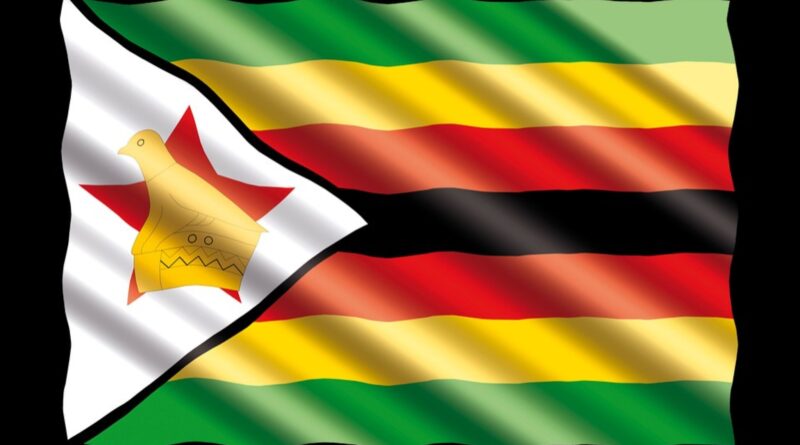Zimbabwe: Want to Say ‘Laugh’ in Shona? There’s an Edutech Startup to Help You
Did you think of trying to learn an African language online during the pandemic, only to be disappointed when you found popular apps like Duolingo didn’t offer Shona or Ndebele or Venda?
Don’t despair. An all-women team of passionate young linguists is tackling the online African language learning gap, with startup Vambo Academy led by Zimbabwean educational technology entrepreneur Chido Dzinotyiwei.
Want to say “laugh” in four different African languages that don’t include Swahili? Here you go, thanks to Vambo Academy.
Laugh is “hleka” in Ndebele spoken in South Africa and Zimbabwe; “seka” in Shona, Zimbabwe’s main ethnic language; “tseha” in Sotho, the language spoken in the mountain kingdom of Lesotho, and “sea” in Venda, spoken in northern South Africa.
The online learning platform is based on a hybrid learning model – with the possibility of learners communicating directly albeit remotely with a tutor, alongside the type-and-ping AI learning familiar to users of bigger language apps.
April Fool’s Day is a unique day when individuals take the opportunity to play practical pranks on their friends, colleagues and loved ones by spreading jokes and hoaxes.
Share your prank stories with us for a good laugh.#vamboacademy #aprilfoolsday #jokes #learnwithus pic.twitter.com/zvhADbqScK
— Vambo Academy (@VamboAcademy) April 1, 2022
Reconnecting to roots
For 25-year-old Dzinotyiwei, the inspiration to found Vambo came from her own experience of being disconnected from her mother tongue, Shona.
Dzinotyiwei’s family left Zimbabwe when she was seven, and settled in neighbouring South Africa. She mastered English and Zulu in that country but was frustrated at not being able to communicate in Shona with her cousins during visits home.
“In the process of re-teaching myself Shona, I discovered I wasn’t the only person going through similar challenges,” Dzinotyiwei told RFI on a visit to Harare this month.
“So many children in the diaspora were struggling to connect to their heritage.”
She and Vambo co-founder Dorcas Kwaramba, another Zimbabwean, started the academy while Dzinotyiwei was on a gap year before taking a masters degree at the University of Cape Town’s Graduate School of Business.
Vambo has pupils as young as six registered on the platform. But many of its clients are diasporans from southern Africa wanting to reconnect with their roots. Now they can do so digitally.
“We’ve managed to get clients from North America, from Europe, from Australia,” said Dzinotyiwei, adding that the average learner is aged between 20 and 40.
Promoting minority languages
At the moment, Vambo is offering 10 languages spoken in South Africa, and Zimbabwe’s two main languages: Shona and Ndebele.
There are plans to expand the languages users can learn, including Swahili, a language widely spoken in East Africa, and minority Zimbabwean languages like Tonga and Nambya.
The possibilities that a platform like Vambo presents for preserving such linguistic diversity is something that excites Zimbabwean cultural and language activist, Davy Ndlovu.
Ndlovu has campaigned for years to save the culture and the Tjwao language of the San ethnic minority in Tsholotsho, a remote district in western Zimbabwe.
“This is really a great way of learning languages and my hope and wish is to see Tjwao one day being added to the platform,” Ndlovu told RFI.
“We are busy creating learning materials but we do not have teachers to teach the language,” he said. “This application would solve some of our problems.”
The voice is an important part of human communication. It provides opportunities to express ideas emotion and even personality.
The World Voice Day is a worldwide annual event that takes place on April 16 devoted to the celebration of the phenomenon of voice.#worldvoiceday pic.twitter.com/yw0PSy2txJ

Sign up for free AllAfrica Newsletters
Get the latest in African news delivered straight to your inbox
— Vambo Academy (@VamboAcademy) April 13, 2022
All-women team
The all-women team behind Vambo has given the academy an edge, according to Dzinotyiwei.
“It’s been great. I’ve never worked with an all-female team before. I’m just seeing there’s a lot of power in that,” she said.
“They understand the nuances behind language, not just as a theoretical medium, but actually as a means to encourage inclusivity, community development and the preservation of heritage.”
She cites a recent blog on the Vambo Academy website that explains the importance of hand gestures while speaking in Shona.
“I now understand that language isn’t just about memorising vocabulary or greetings. It’s something that really speaks to the identity of someone,” she said.
“When you choose to learn a certain language, you’re literally unlocking a world of millions of people that have a rich history that kind of feeds into who they are and how they do things.”

